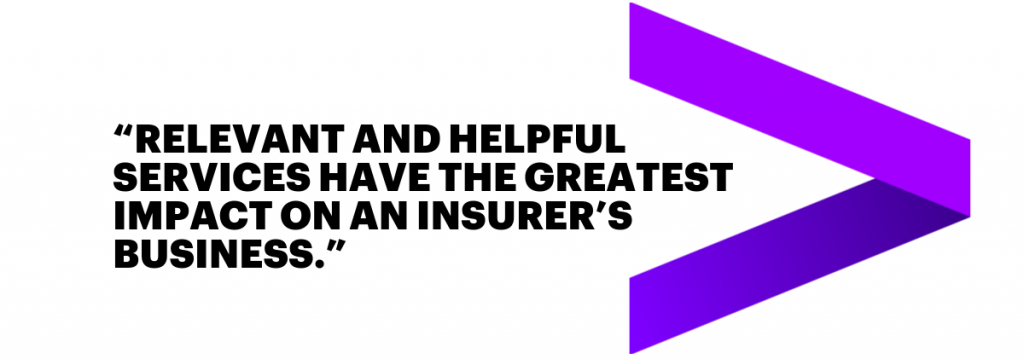Other parts of this series:
Carriers that are quick to use data generated by connected insurance services to overhaul their marketing will gain a big advantage over their competitors.
The rising popularity of highly-personalized connected insurance services is forcing carriers to overhaul their marketing strategies. They can no longer rely on traditional methods of customer analysis to identify the needs of their policyholders.
Demographic studies focusing on the age, wealth or geographic location of consumers, for example, don’t provide insurers with the insight they need to forge deeper ties with customers. The lure of digital products and services cuts across such categories. New approaches are needed that recognize the habits and behaviors of customers in the digital economy.

Consumers have evolved and new insurance trends have emerged in our Insurance Consumer Study 2021 report.
Insurance Consumer Study 2021 report." data-analytics-module-name="aib-series-block" data-analytics-component-name="aib-series-block" data-analytics-template-zone="series-block" data-analytics-link-type="navigation" data-analytics-content-class="Content" data-analytics-engagement="1">Read our latest researchFortunately, insurance providers can now access vast troves of customer data from a growing array of connected services. Demand for connected wellness, home and auto services is rising fast. Insurers that quickly capitalize on these valuable data streams, and use predictive analytics to anticipate their customers’ changing needs, will gain a crucial edge on their competitors.
Our Global Financial Services Consumer Study found that nearly half the 47 000 consumers we polled expect their financial services provider to use their data to anticipate their needs and recommend products.
To better understand what consumers in the digital economy want from their insurers and banks, the study examined how people perceive and interact with these organizations. The results were a real eye-opener. They showed how marketing analysis using traditional demographic segmentation can miss the nuances present in customers’ relations with their financial providers. Understanding these subtleties is vital. It enables insurers to deliver personalized services that continually delight their customers.
I recommend that you take this opportunity to look at some of many other insights in the Global Financial Services Consumer Study.

Another innovative approach to gaining greater insight into consumers in the digital environment is the Love Index developed by our colleagues at Fjord. The Love Index uses extensive research data and statistical analysis to gauge the extent to which consumers view various business brands as authentic, fun, relevant, engaging, social or helpful. The scoring across these categories indicates levels of consumer satisfaction and the likelihood of customers staying with a brand. It also shows how likely customers are to recommend a brand to someone else.
Research using the Love Index by Fjord in France shows that insurance providers tend to lag companies in the retail and mobility industries in the quality of the experiences they give their customers. However, insurers are usually better at engaging with consumers and identifying their needs and preferences.
The Fjord study found that relevant and helpful services have the greatest impact on an insurer’s business. Relevance is the strongest driver of policy renewals and customer satisfaction, while helpfulness is the main promoter of referrals. Services that are fun or social appear to have little influence on insurance customers’ behavior. An outstanding customer experience is as important as price, brand and product features. The customer experience is especially important when a policyholder is looking to buy or renew a complex product or service.
Further research from Fjord, its recent Insurance Mindset analysis, uses a human-centric approach to define new insurance services and chart likely customer journeys across multi-channel distribution networks.
To stay relevant and win loyalty in the digital economy, insurers should harness their consumer data to deliver hyper-relevant, highly-convenient and trustworthy customer experiences. For further insights into new approaches to consumer analysis have a look at these links.










